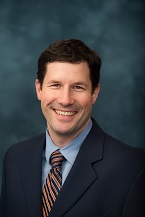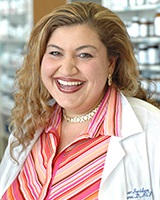
Pain and Cannabinoid Medicine Update
Target Audience
Learning Objectives
- Discuss interventional treatments for chronic headache including peripheral nerve blocks and appropriate use of botulinum toxin therapy
- Recall the newer treatment options for migraine and other headache syndromes
- List the physiological changes found in the fibromyalgia patient and outline new and innovative treatment approaches
- Review the endocannabinoid system and appropriate clinical use of cannabinoids in pain management
- Review dosing, kinetics, and drugs interactions of cannabinoids
- Discuss the regulatory landscape of using cannabinoids in clinical practice
Additional Information
| Attachment | Size |
|---|---|
| 154.96 KB | |
| 160.2 KB |
 | Jeff Bost, PA-CMr. Bost is a Clinical Instructor in the Department of Neurosurgery at University of Pittsburgh Medical Center and Clinical Assistant Professor at Chatham University. He has a special interest in minimally invasive spine and brain surgery and have collaborated on scores of scientific medical papers and books in these areas. Over the last 15 years he has researched, lectured and written on the use of alternative treatment for pain control. Mr Bost, along with Dr Joseph Maroon have authored two books on the use of omega-3 fish oil, including: Fish Oil: The Natural Anti-Inflammatory, currently in its forth printing with over 75,000 copies sold and recently, Why You Need Fish Oil. He has given over 100 invited lectures, 24 national posters and oral presentations, 29 coordinated research projects, five workshops presentations, 35 scientific articles and 10 book chapters. |
 | Wade Cooper, DODr. Cooper is the Medical Director of the University of Michigan Headache and Neuropathic Pain Clinic. He is an assistant professor with the departments of Neurology and Anesthesiology at the University of Michigan School of Medicine. He also serves as the fellowship director for the Headache Medicine Fellowship Program. He completed the Integrative Medicine Faculty Scholar Program at University of Michigan. His areas of interest include interventional treatments for chronic headache and inflammation syndromes related to headache and centralized pain. |
 | Joseph Maroon, MDDr. Maroon is Vice President of the American Academy of Anti-Aging Medicine, Clinical Professor and Vice Chairman of the Department of Neurosurgery at the University of Pittsburgh Medical Center. He is team neurosurgeon of the Pittsburgh Steelers and 8-time Hawaii Ironman Championship Triathlete. |
 | Sahar Swidan, PharmD, BCPS, ABAAHP, FAARFMDr. Swidan is President and CEO of Pharmacy Solutions in Ann Arbor, MI, Adjunct Associate Professor of Clinical Research and Leadership at George Washington University School of Medicine and Health Sciences, and Adjunct Clinical Associate Professor of Pharmacy at Wayne State University and Chicago State University. She received her Doctor of Pharmacy degree and completed a 3-year research Fellowship in Bio- Pharmaceutics, and Gastroenterology at the University of Michigan. Before that, she was Director of Pharmacy at Chelsea Community Hospital and the clinical pharmacist for the inpatient head and chronic pain service. Dr. Swidan is board certified and an advanced fellow in anti-aging and generative medicine. She is an internationally renowned speaker in the areas of pain management, headaches, and BHRT. She has authored several book chapters, articles, and patient education material in head and general pain management and personalized medicine. Most recently, Dr. Swidan has contributed in authoring “Metabolic Therapies in Orthopedics, Second Edition”. This edition provides continued knowledge on how optimizing metabolic pathways can improve the success of regenerative therapies through emerging technologies, integrative approaches, clinical research, and compelling evidence from over 30 experts. Dr. Swidan provides key insight in the areas of drug-related muscular pain and sarcopenia and the effects of hormones on the musculoskeletal system. Dr. Swidan is currently Co-Editing and Co-Authoring a book with many thought leaders from around the globe in the area of opioid-free pain management.
|
This activity has been planned and implemented in accordance with the accreditation requirements and policies of the Accreditation Council for Continuing Medical Education (ACCME) through the joint providership of The George Washington University School of Medicine and Health Sciences and the American Academy of Anti Aging Medicine. The George Washington University School of Medicine and Health Sciences is accredited by the ACCME to provide continuing medical education for physicians.
The George Washington University School of Medicine and Health Sciences designates this live activity for a maximum of 6 AMA PRA Category 1 Credit(s) ™. Physicians should claim only the credit commensurate with the extent of their participation in the activity.
Available Credit
- 6.00 AMA PRA Category 1 Credit™The George Washington University School of Medicine and Health Sciences is accredited by the Accreditation Council for Continuing Medical Education (ACCME) to provide continuing medical education for physicians.
Required Hardware/software
- High-speed internet connection
- Browsers:
- This educational activity has been tested in the latest versions of Internet Explorer, Edge, Firefox, Safari, and Chrome browsers on Windows or Macintosh computers.
- Safari, Firefox, or Chrome browsers are recommended for the best results.
- Internet Explorer browser is not recommended. If you must use Internet Explorer, please update to version 11, which is the only version supported by Microsoft at this writing.
- Latest version of Adobe Reader to view PDF documents.

 Facebook
Facebook X
X LinkedIn
LinkedIn Forward
Forward